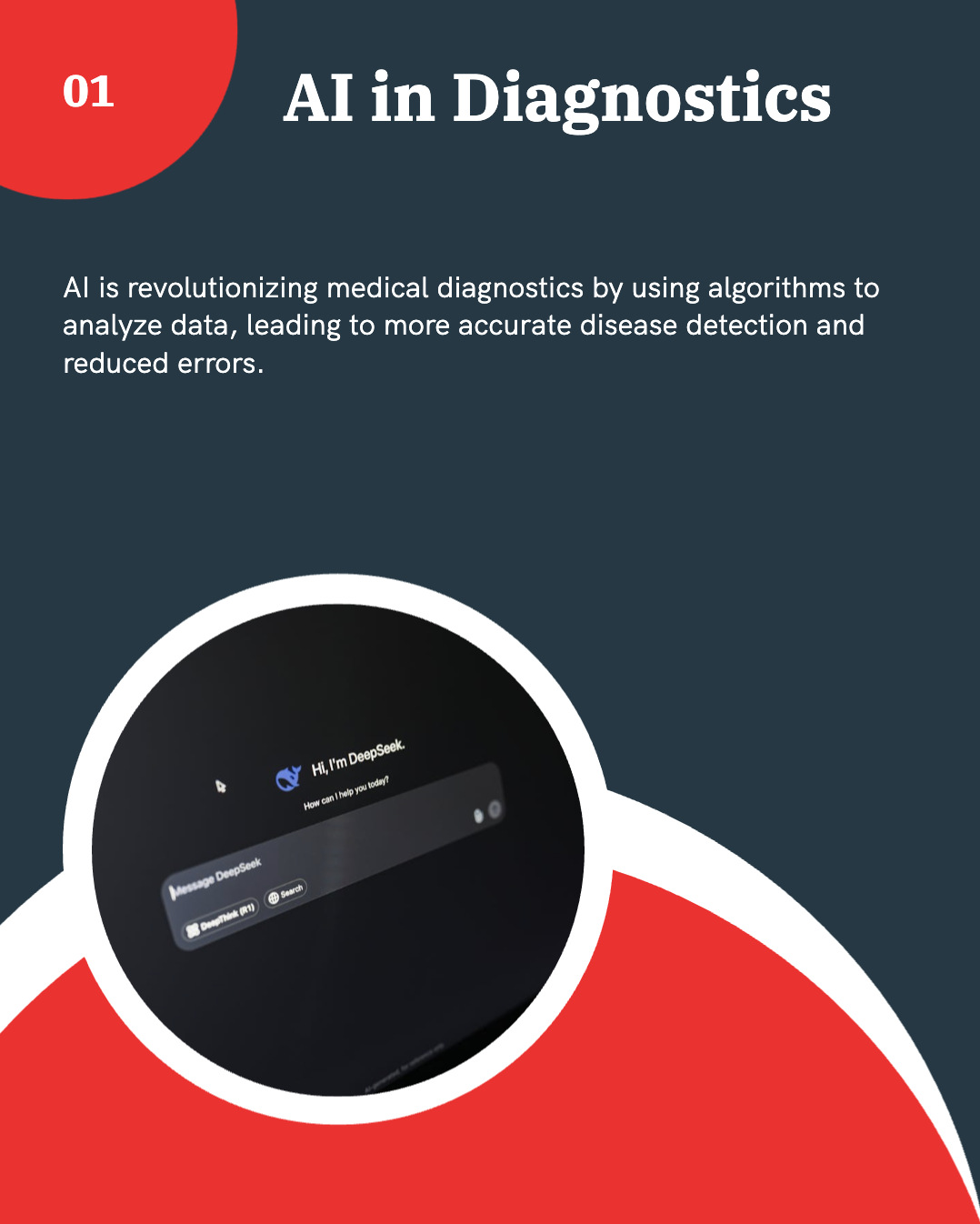
IMAGE
Artificial Intelligence (AI) has begun to revolutionize various industries and medicine is no exception. As healthcare systems face increasing demand for efficiency and accuracy, AI emerges as a game-changer in diagnostics, treatment, patient care, drug development, and beyond. This article explores how AI is shaping the future of medicine and its potential impact on healthcare delivery.
AI in medicine refers to the use of machine learning algorithms, data analytics, and automation to perform tasks that typically require human intelligence. These tasks include diagnosing diseases, predicting outcomes, and personalizing treatment plans.
AI algorithms can analyze vast amounts of data to detect diseases with high precision. For example:
Human errors in diagnosis can have fatal consequences. AI minimizes these risks by providing evidence-based recommendations and identifying anomalies that might go unnoticed.
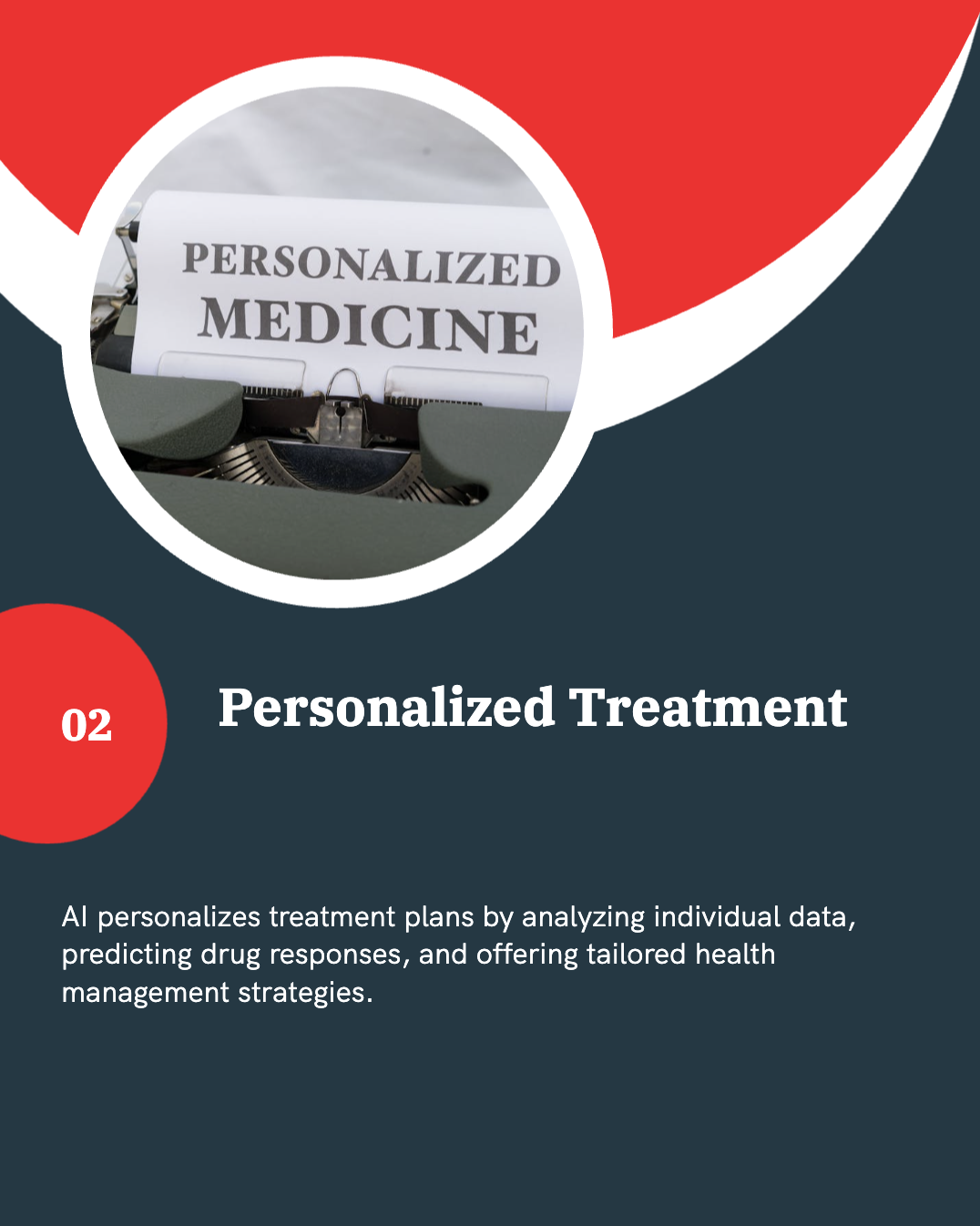
AI analyzes genetic, lifestyle, and clinical data to design personalized treatment plans. Examples include:
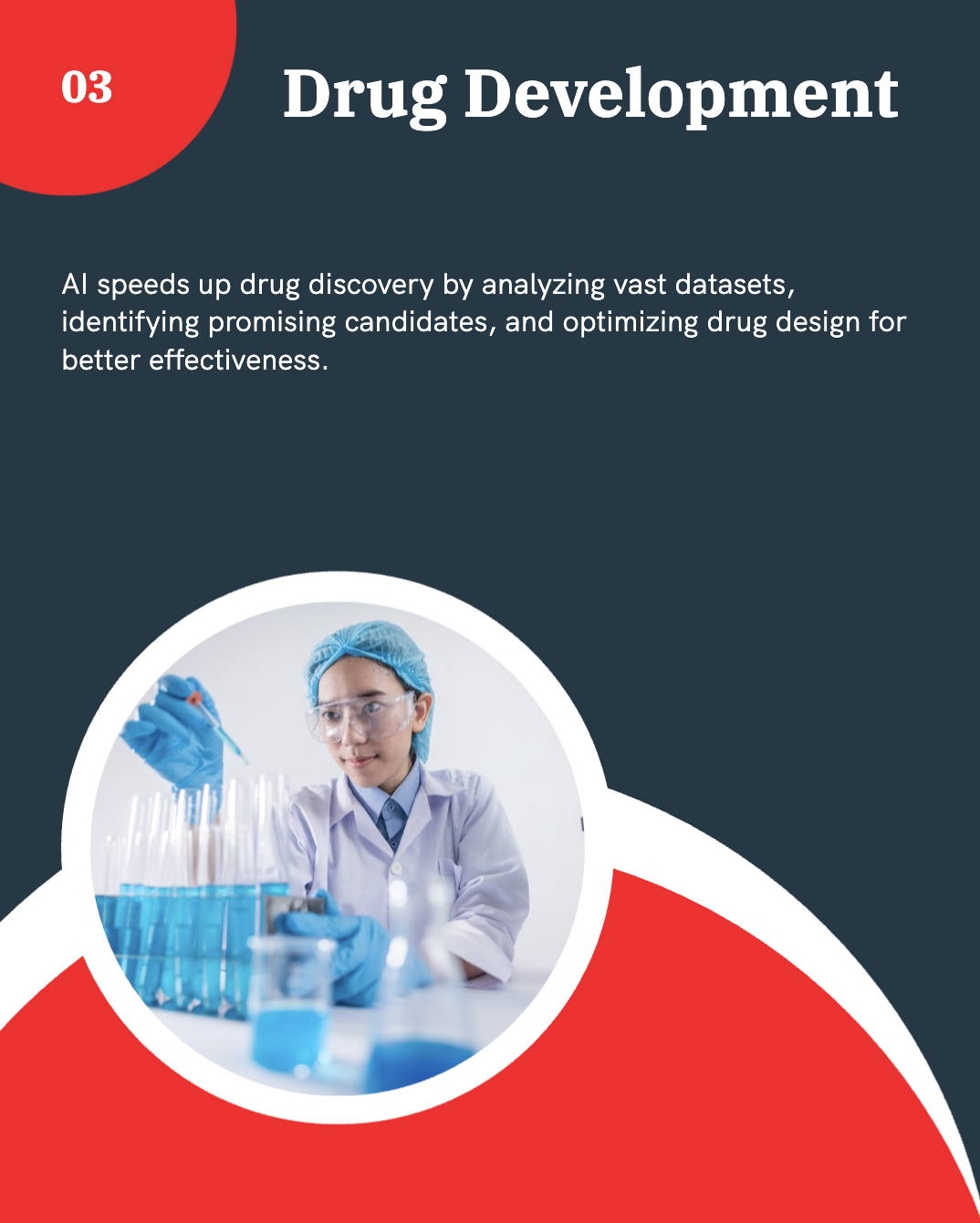
AI significantly speeds up drug discovery by analyzing massive datasets of molecular structures, genetic information, and clinical trials.
AI optimizes clinical trials by:
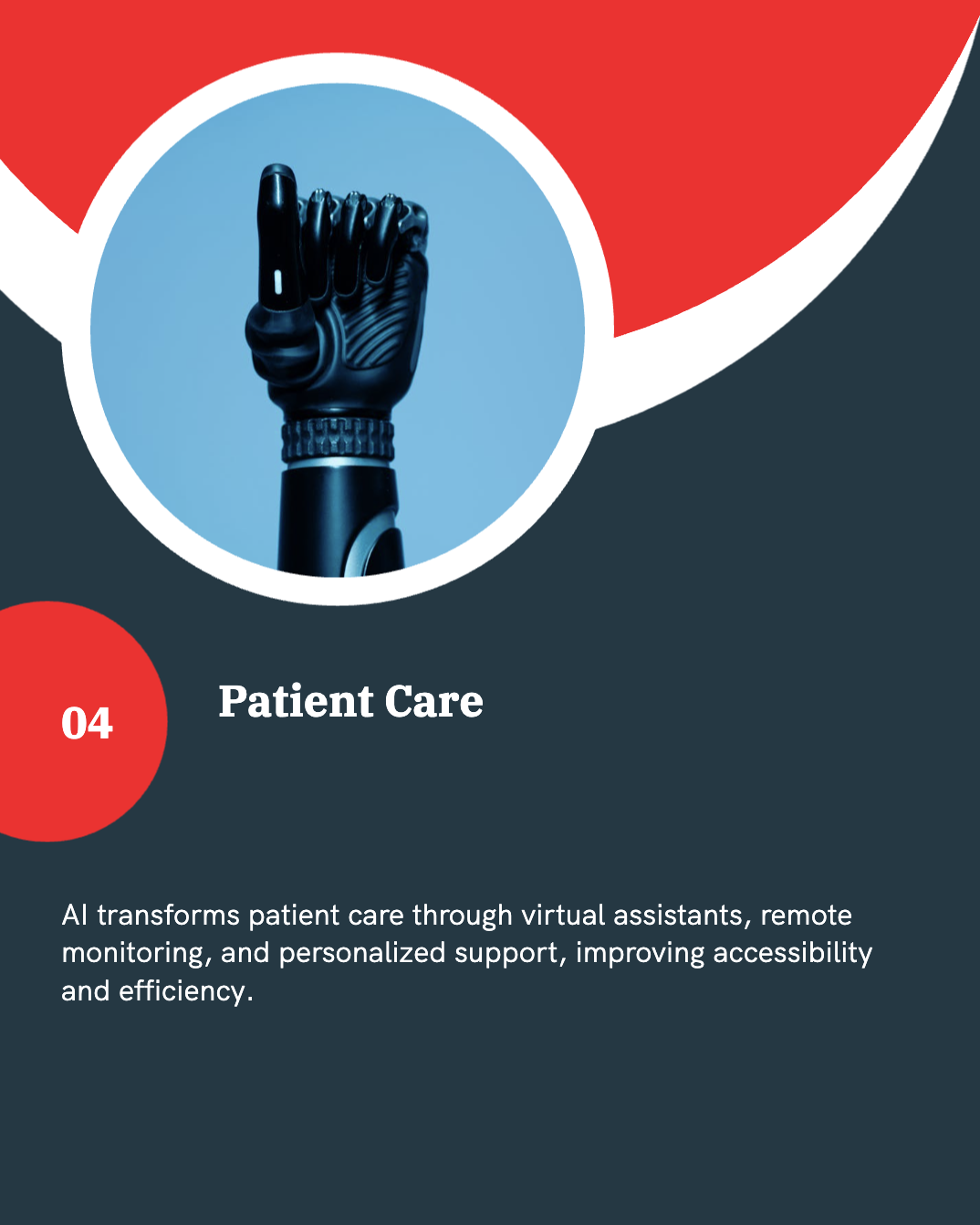
AI-powered chatbots and virtual assistants provide round-the-clock support for:
Wearable devices integrated with AI track vital signs and alert healthcare providers about potential issues in real time.
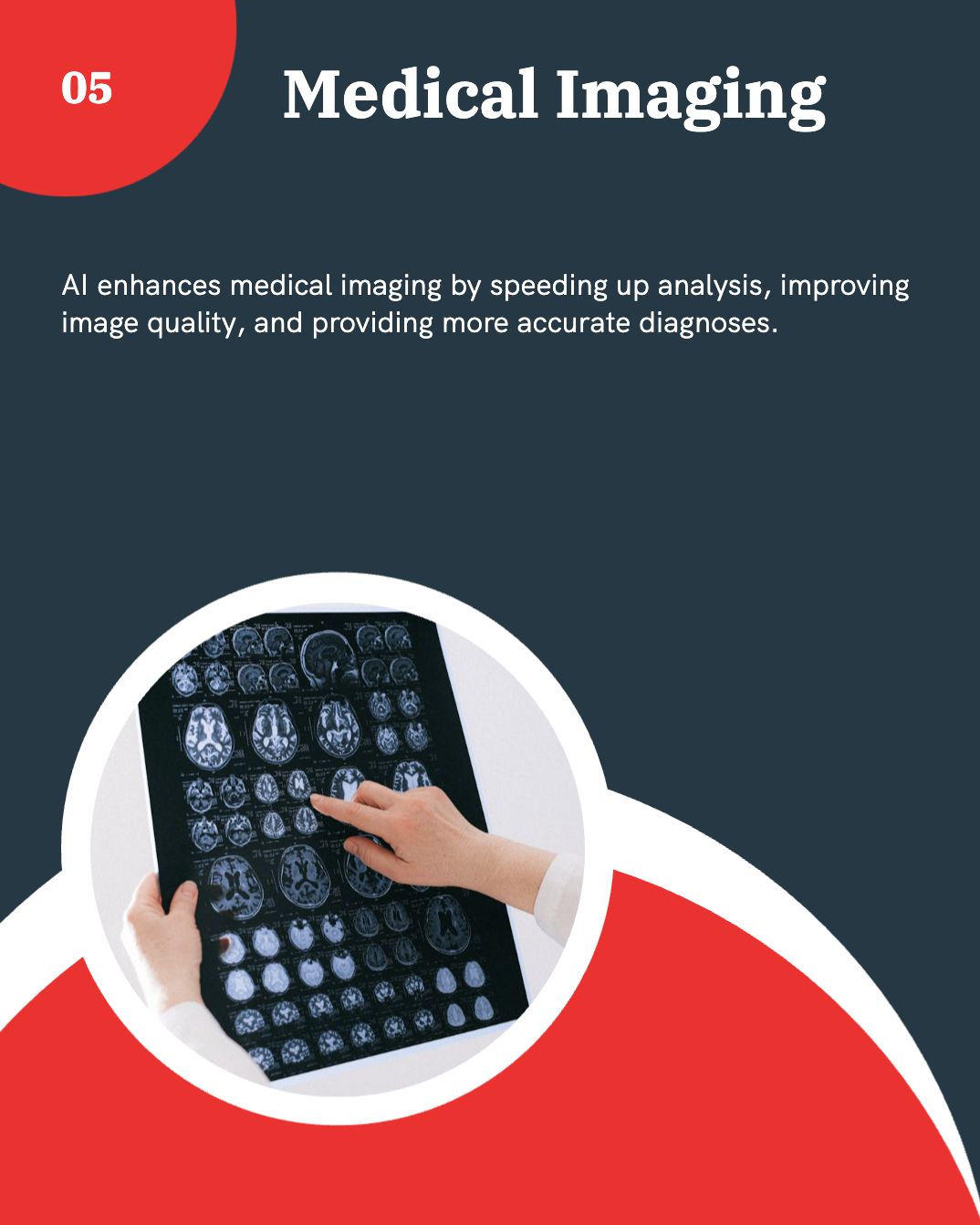
AI algorithms rapidly process and interpret medical images, such as MRIs and CT scans, ensuring quicker diagnoses.
AI improves the quality of imaging by reducing noise and enhancing resolution, leading to better diagnostic outcomes.

Robotic systems like the da Vinci Surgical System leverage AI to enhance precision during minimally invasive surgeries. Benefits include:
AI simulates real-life surgical scenarios, helping trainees improve their skills without risk to patients.
The integration of AI requires robust data protection measures to safeguard sensitive health information.
AI models can inherit biases present in training data, potentially leading to unequal treatment outcomes. Ongoing efforts aim to develop unbiased, fair systems.
AI tools must meet strict regulatory standards before deployment, ensuring safety and reliability.
Predictive analytics powered by AI allows healthcare providers to anticipate:
During the COVID-19 pandemic, AI helped model infection rates, optimize resource allocation, and develop vaccines at unprecedented speeds.
AI holds promise for addressing healthcare disparities by:
AI is driving breakthroughs in understanding genetic disorders, paving the way for more precise gene therapies.
Rather than replacing doctors, AI will serve as a powerful tool to augment their capabilities, enabling better decision-making.
The integration of AI in medicine is reshaping healthcare delivery, making it more accurate, efficient, and personalized. While challenges remain, the potential benefits far outweigh the hurdles. By leveraging AI responsibly and ethically, we can create a future where healthcare is accessible, affordable, and of the highest quality.
AI powers virtual consultations by analyzing patient symptoms and providing preliminary diagnoses, enhancing the efficiency of telemedicine services.
Key risks include data breaches, algorithm bias, and over-reliance on AI systems without human oversight.
AI is designed to complement, not replace, healthcare professionals by improving their efficiency and decision-making capabilities.
AI aids mental health care through tools like chatbots that provide cognitive behavioral therapy and platforms that monitor mood patterns using natural language analysis.
AI identifies risk factors and predicts potential health issues, enabling proactive interventions to prevent diseases before they develop.
 30.12.2024
30.12.2024